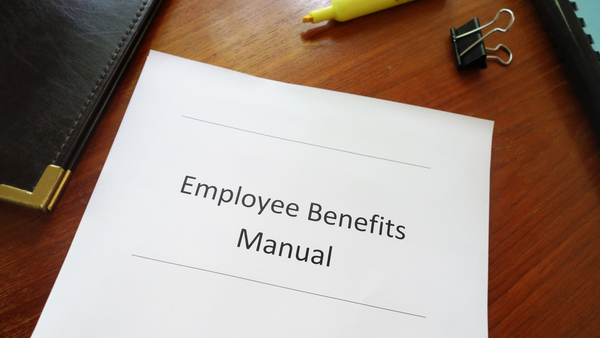
Health insurance, retirement plans and dental or vision coverage are must-haves for employers that want to keep employee morale high, but over half of workers are lukewarm about or dissatisfied with their employers’ benefits packages, according to new data from the Employee Benefit Research Institute.
EBRI’s latest Health and Voluntary Workplace Benefits Survey of 1,500 workers age 21-64 found that a third of employees (32%) are only somewhat satisfied with their current employer’s benefits and 20% are unsatisfied.
Many workers aren’t very optimistic about the future of their benefits packages, either. Half of workers (51%) aren’t sure they’ll have the same benefits package three years from now, and of those, almost half (43%) believe those benefits packages will worsen in the next three years.
That could be a problem, given that how workers feel about their benefits is strongly correlated to morale and turnover, according to EBRI. About six in 10 workers (59%) who were extremely satisfied with their benefits also said they were extremely satisfied with their jobs overall, for example. Only 8% of workers dissatisfied with their benefits said the same.
“Workers overwhelmingly consider health insurance to be the most important workplace benefit when considering whether to stay in a current job or choose a new job. Nearly two-thirds (64%) say this benefit is extremely important, while an additional 23% consider it to be very important,” EBRI reported.
“A retirement savings plan (rated extremely or very important by 77% of workers) and dental or vision insurance (rated extremely or very important by 72%) are also among the highest-rated benefits. Over one-half of workers say traditional pension or defined benefit plans (54%), life insurance (52%), and disability insurance (52%) are important,” it added.
Worker expectations have risen in the last two years, according to the data. The percentage of workers saying retirement savings plans are “extremely important” rose five percentage points between 2014 and 2016; for dental and vision coverage, the increase was seven points. Life insurance rose nine points, disability insurance rose six, and retiree health insurance rose four points.
How benefits are paid for also makes a difference to workers, according to the report. Only 20% said they would prefer moving to a system where the employer gives the employee money for benefits and lets workers decide whether to buy benefits on their won and what to spend. About half (46%) of employees said they spent less than $2,500 on their benefits in 2016, excluding contributions to their retirement plans.
Many employees want more help, though. About two-thirds said they’re confident they can make informed benefits choices, but about as many said they’d welcome advice from a third-party advisor or an online program.
“Employers who offer a strong employee benefits package that balances costs and choice should find themselves with a competitive advantage over other companies when it comes to attracting and retaining desirable workers and will have more satisfied employees overall,” the report said.
According to EBRI’s latest Health and Voluntary Workplace Benefits Survey of 1,500 workers age 21-64, here’s how many workers say their employer offers the following benefits:
Health insurance 82%
Dental insurance 74%
Retirement plan 74%
Vision insurance 67%
Life insurance 63%
Short-term disability 58%
Long-term disability 51%
Health savings accounts (HSA) 49%
Long-term care insurance 33%
Accident insurance 28%
Supplemental health 21%
Critical illness coverage 19%
Cancer insurance 16%
About eight in 10 workers who are offered health coverage, a retirement plan or dental coverage actually take the employers’ offer and enroll in the benefit program, according to EBRI.


